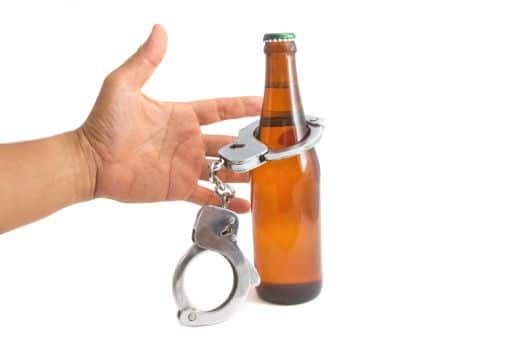Many of us have an image of a typical drunk driver. A hard-core partier. An alcoholic. A person who has been arrested for drunk driving in the past but won’t change.
But the drunk drivers who cause the most deaths and injuries aren’t repeat offenders. They’re people who have never been convicted of drunk driving before. This startling statistic accompanied Mothers Against Drunk Driving’s release of a report in February describing the status of drunk driving laws in all 50 states.
Nationwide, two-thirds of drunk driving arrests involve drivers with no prior drunk driving conviction. But this doesn’t mean that first-time offenders have never driven drunk before, MADD said. Experts estimate that a first-time offender has typically driven drunk 80 times before being caught.
MADD called for tougher laws aimed at both first-time and repeat offenders to reduce the number of drunk-driving accidents.
Drunk Driving in Florida
MADD’s report gave Florida four stars out of five for its drunk driving prevention efforts but said the state needs to address the problem of repeat offenders.
“Florida requires interlocks for first time convicted drunk drivers with a BAC [blood alcohol content] of .15 or greater. However, more must be done to stop repeat offenders, as over 20,000 DUI offenders were arrested in 2010 for driving on a suspended license,” the report said.
MADD wants Florida lawmakers to require all convicted drunk drivers to use ignition interlocks. Nineteen states already have this requirement.
Ignition Interlock Devices
An ignition interlock device is a tiny breathalyzer that measures a driver’s breath-alcohol concentration using a sensor connected to the car’s ignition. If the driver’s breath-alcohol exceeds a certain limit, or if the driver doesn’t blow into the device, the car won’t start.
MADD says that suspending a driver’s license is ineffective, because 50 to 75 percent of convicted drunk drivers will continue to drive even after their licenses have been suspended. MADD instead recommends ignition interlock devices.
The National Highway Traffic Safety Administration has concluded that ignition interlock devices do reduce the chances of subsequent drunk driving arrests. In addition, interlocks make it possible for offenders to retain their driver’s licenses and drive to work and appointments.
Surveys of offenders indicate that they believe the devices reduce drinking and driving, and families report feeling better because they knew their loved ones were not driving after drinking.
A recent NHTSA report on ignition interlock devices says that the readings on the interlock devices also proved to be an excellent predictor of an individual’s risk of future drunk driving. Those individuals who commonly failed the breath test were much more likely to drive drunk in the future. This data might be useful for determining when or whether to restore a person’s driver’s license.
Sources:
Media.Jrn.com
NHTSA.gov








